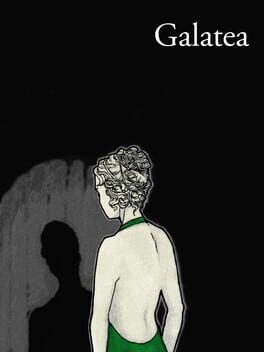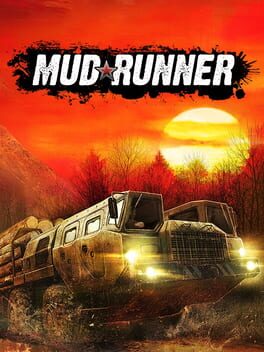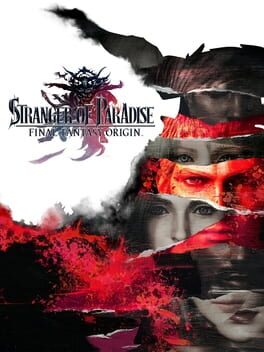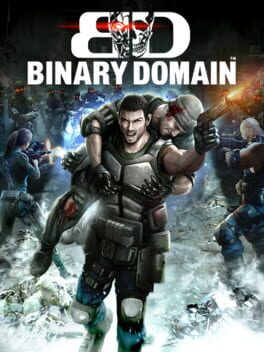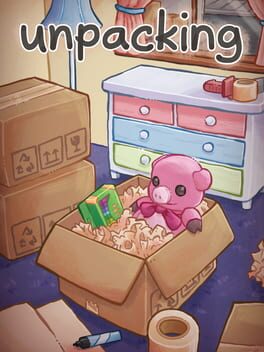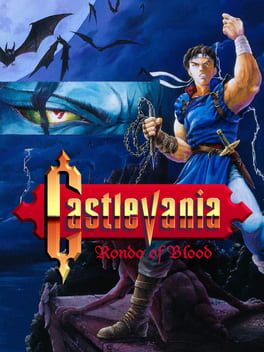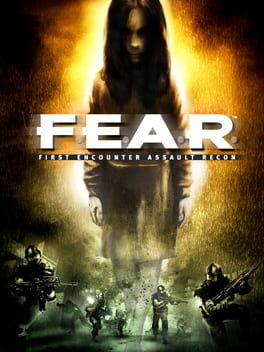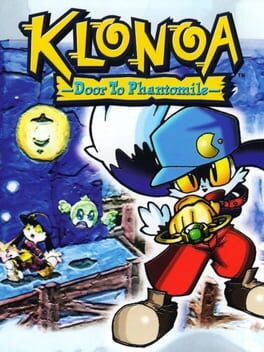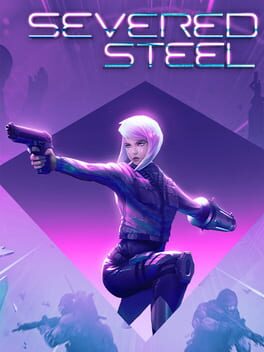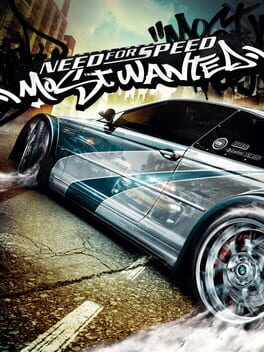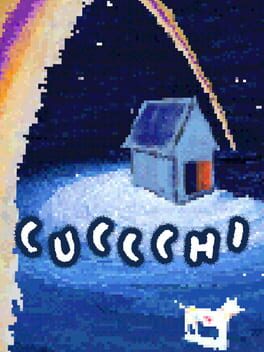rubenmg
2008
Only one objective, to write 1000 words in order to finish your dissertation and, most importantly, prevent your girlfriend Violet from going away as she has been waiting too long for that task to be done, this is the last chance. The intention is always to get rid of the immediate distraction which then leads to another distraction, and so forth. Creating a very strong sense of space by focusing on detailing a single room (which adds to the lack of attention), the solutions to each problem are obtuse, not so much for the sake of getting you stuck (using the hint command will end up giving you the exact actions to execute) but to reach exaggerated absurdist situations unexpectedly twisted for the setting, ending up in a very intimate total chaos.
Forgot to say, everything in the game is narrated by Violet, or better said, by the Violet that the protagonist imagines, as she is still patiently waiting somewhere else far away. Adding a more catchy flow to every line where the narrator has a personality while still being absent, there is some more cute obvious twist behind it. No matter the small distractions, what the main character cannot get out of their head and what motivates them to write is the same thing. They cannot stop thinking about Violet.
Forgot to say, everything in the game is narrated by Violet, or better said, by the Violet that the protagonist imagines, as she is still patiently waiting somewhere else far away. Adding a more catchy flow to every line where the narrator has a personality while still being absent, there is some more cute obvious twist behind it. No matter the small distractions, what the main character cannot get out of their head and what motivates them to write is the same thing. They cannot stop thinking about Violet.
2000
To an extent I can appreciate Galatea for its search for an NPC with more presence than usual in videogames in general and in text adventures in particular. If there is one thing I’ll never get tired of is people experimenting with IAs, especially when it is more about trying new models than raw technological power.
And yeah, you never know exactly how Galatea is and the conversations are equally blurred enough to not be able to really move anything exactly in the direction you want. My main concern is in not being able to properly develop any of its themes. In a way I guess having multiple big thematic ideas as well as various dozens of endings going around was just the perfect match for the game, but in my playthroughs none of them got into anything interesting. Probably much of it has to do with a writing that doesn’t stand up enough by itself.
In one of the conversations the main character ended up talking with Galatea about their family, their sister, and crying with her reaching through a connection beyond the cold relation of a visitor and a museum piece. The problem? It got out in a few lines (which can be fine if done well) and honestly didn’t feel to me that neither the main character nor Galatea had any kind of confidence, trust or just feeling between them yet for the talk to end up that way. It makes me wonder if it wouldn’t have been better to reduce all the possible ramifications to have a more focused development, in particular when reaching near the personal areas, probably the most interesting aspects of the dialogues. I know that Emily Short herself has already reckoned that this is no perfect game by any means, especially as more games and years passed by. And in a similar way, I appreciate Galatea in some ways, but the words weren’t enough to make me want to visit again.
And yeah, you never know exactly how Galatea is and the conversations are equally blurred enough to not be able to really move anything exactly in the direction you want. My main concern is in not being able to properly develop any of its themes. In a way I guess having multiple big thematic ideas as well as various dozens of endings going around was just the perfect match for the game, but in my playthroughs none of them got into anything interesting. Probably much of it has to do with a writing that doesn’t stand up enough by itself.
In one of the conversations the main character ended up talking with Galatea about their family, their sister, and crying with her reaching through a connection beyond the cold relation of a visitor and a museum piece. The problem? It got out in a few lines (which can be fine if done well) and honestly didn’t feel to me that neither the main character nor Galatea had any kind of confidence, trust or just feeling between them yet for the talk to end up that way. It makes me wonder if it wouldn’t have been better to reduce all the possible ramifications to have a more focused development, in particular when reaching near the personal areas, probably the most interesting aspects of the dialogues. I know that Emily Short herself has already reckoned that this is no perfect game by any means, especially as more games and years passed by. And in a similar way, I appreciate Galatea in some ways, but the words weren’t enough to make me want to visit again.
2017
There are two keys to Mudrunner. The first is the joy of moving through the mud. I can't quite describe why it is, it's a bit of a childish taste like kids stepping in puddles just because, you just feel at ease being in constant play with and against this peculiar resistance. The main character of the physics is the terrain here, it molds and deforms with the passing of your wheels, leaving traces that not only remain as an aesthetic reminder, but also create their own physical scar for the tires that pass by later during the game. This taste of physicality is everywhere.
Every little stone can cause a catastrophe, the confidence given by the speed of the asphalt can be another tragedy, a tree is both a blockage and a hitch from which to borrow strength. My favorite interactions have to do with those between trucks. Going on a trip with two of your machines together, pushing and pulling each other when the wheels are buried, or my favorite moments of all when one truck manages to turn another partner around by pulling with all its might, a humbly heroic moment in the middle of the forest without any music or fanfare, after the rescue there is simply a route to continue.
The second key starts to appear here: the adventure. Because the game knows how to put all its physical bases in a very good context. Despite how misleading the heavy metal guitars of the main menu may be, the adventure is relaxed, with vehicles moving in first gear 99% of the travel, that is when they are moving at all, with hours passing between day and night but without any pressure, each at its own pace, whether you deliver the logs one at a time or in one trip, whether you meet all the secondary objectives or none at all. I still recommend unlocking all the watchpoints and garages, as in addition to making the main deliveries lighter they add their own adventurous layer. There is a little bit of everything here, with the journey into the unknown with smaller vehicles in order to uncover the map and some logistics to complete the various assignments by looking at the state of the map and the vehicles at hand. Of course, there can be no adventure without improvisation. If what I enjoyed most about the physicality was the rescue of an inactive vehicle, it's probably because it involved a series of adventures and misadventures. Starting with the unfortunate accident that leaves the vehicle idle for some reason, posing what rescue options there are and finally carrying out, or at least trying to, the action.
Every little stone can cause a catastrophe, the confidence given by the speed of the asphalt can be another tragedy, a tree is both a blockage and a hitch from which to borrow strength. My favorite interactions have to do with those between trucks. Going on a trip with two of your machines together, pushing and pulling each other when the wheels are buried, or my favorite moments of all when one truck manages to turn another partner around by pulling with all its might, a humbly heroic moment in the middle of the forest without any music or fanfare, after the rescue there is simply a route to continue.
The second key starts to appear here: the adventure. Because the game knows how to put all its physical bases in a very good context. Despite how misleading the heavy metal guitars of the main menu may be, the adventure is relaxed, with vehicles moving in first gear 99% of the travel, that is when they are moving at all, with hours passing between day and night but without any pressure, each at its own pace, whether you deliver the logs one at a time or in one trip, whether you meet all the secondary objectives or none at all. I still recommend unlocking all the watchpoints and garages, as in addition to making the main deliveries lighter they add their own adventurous layer. There is a little bit of everything here, with the journey into the unknown with smaller vehicles in order to uncover the map and some logistics to complete the various assignments by looking at the state of the map and the vehicles at hand. Of course, there can be no adventure without improvisation. If what I enjoyed most about the physicality was the rescue of an inactive vehicle, it's probably because it involved a series of adventures and misadventures. Starting with the unfortunate accident that leaves the vehicle idle for some reason, posing what rescue options there are and finally carrying out, or at least trying to, the action.
Loot, out of place sidequests, the weirdest decisions at the most crucial cutscenes, keeping everyone dressed up during the most dramatic events (poor souls that don’t disable visible headgear and have to stare to a close up of a helmet or the dumbest mask), and yet…
The action has some good fundamentals in order to keep you active and managing space, but if it stays fresh for the whole game it is because of the combination of the different variations. Small gimmicks in every mission, trying new jobs, some slight changes in the enemies that may not seem that much but end up making you plan some new strategies, specially when the placement is a little thought out, and why not, infinite comboing against the wall your least liked monster with your friends, never gets old. And bosses don’t fall behind, they often take the highlight, a good arsenal to cover all the surroundings and distances, barely taking any breath between an attack and the next, good luck finding an opening.
And what a bunch, three thirty-something years old join with two twenty-something years old to play the most visually overdesigned sci fi dungeons and dragons campaign ever. The IA distracting the boss when you need a rest, trying to keep every distraction away from your target, helping you to not drop the staggering… Not anything never seen nor complex, but always very present while fighting side by side nonetheless, giving more strength to every chit chat, to every dialogue, to every fist bump. The Warriors of Light… not, they don’t fit that role no matter which side they are viewed on, that prophecy would materialize later. What is the role of the outcasts forced to complete a prophecy that not even they understand? The biggest merit of the narrative is that even with the amount of giant obstacles that it likes to place arbitrarily, you never leave Jack's resolve, a guy that speaks in punches, and me backing up every single hit thrown. To fight with all that he has for what he knows is right, no matter the cost, with Ash, Jed, Neon and Sophia on his side, even if the role of the heroes is for another group. Finding their way to make it work.
You’ve got to be crazy if you want to change the world.
The action has some good fundamentals in order to keep you active and managing space, but if it stays fresh for the whole game it is because of the combination of the different variations. Small gimmicks in every mission, trying new jobs, some slight changes in the enemies that may not seem that much but end up making you plan some new strategies, specially when the placement is a little thought out, and why not, infinite comboing against the wall your least liked monster with your friends, never gets old. And bosses don’t fall behind, they often take the highlight, a good arsenal to cover all the surroundings and distances, barely taking any breath between an attack and the next, good luck finding an opening.
And what a bunch, three thirty-something years old join with two twenty-something years old to play the most visually overdesigned sci fi dungeons and dragons campaign ever. The IA distracting the boss when you need a rest, trying to keep every distraction away from your target, helping you to not drop the staggering… Not anything never seen nor complex, but always very present while fighting side by side nonetheless, giving more strength to every chit chat, to every dialogue, to every fist bump. The Warriors of Light… not, they don’t fit that role no matter which side they are viewed on, that prophecy would materialize later. What is the role of the outcasts forced to complete a prophecy that not even they understand? The biggest merit of the narrative is that even with the amount of giant obstacles that it likes to place arbitrarily, you never leave Jack's resolve, a guy that speaks in punches, and me backing up every single hit thrown. To fight with all that he has for what he knows is right, no matter the cost, with Ash, Jed, Neon and Sophia on his side, even if the role of the heroes is for another group. Finding their way to make it work.
You’ve got to be crazy if you want to change the world.
2012
When an enemy robot falls down, it becomes a sacrificial tool that will crawl towards his objective, its life is now regardless. When a teammate falls down it becomes a rescue mission, it will not take a second for a partner to ask if there is a need for help. In the machine apocalypse where the line between human and robot is so blurred that no one can know for sure what they are anymore, the team that defends humanity is just one thing: comrades.
Small talks, what to do when everything is over, jokes, being dumb, having the worst romance, lending a helping hand, dividing sides of the battle, acting as decoys, covering each others back. The dichotomy between artificial and human is in them in various ways, the militaristic ambiance makes orders seem robotic, partners will listen to you more if they trust you but said trust is represented by a simple bar. Upgrades are equipped through nanomachines and it could be considered that traditional game elements like the dependency on weapons or the nature of ally AI are slightly recontextualized just by the setting.
What is more interesting within the main theme is not so much in taking it as philosophical or as a complete joke, very little will be found in those ways. It is a considerate trust in humanity that doesn’t fall into naivety. Humans brought our own apocalypse to begin with, and if you think that we may have learned from the past, you are very wrong. By the end of the game a plot twist is revealed and what we thought was the “human” side of the conflict ends up being just another fight over power. Upon this discovery, all of the team has it clear, as always, no matter if the fight is too big for them, they won’t budge down and will do everything that is in their hand.
Knowing a bit about the studio, it’s surprising to see a game like this. It sure seems like there were a lot of problems in development, probably related to tackling a new genre, and the game ends up falling a bit short in some aspects, especially in the second half. But also it seems like they wanted to build this group adventure so much, there was so much charisma that the studio would blow out if they didn’t finish the game. It sure would be a shame if the same team would later spend the rest of their days making carbon copies of formulas that they don't care about anymore, taking a mold where everything fits, or at least that's what they wish to, turned into robots.
Small talks, what to do when everything is over, jokes, being dumb, having the worst romance, lending a helping hand, dividing sides of the battle, acting as decoys, covering each others back. The dichotomy between artificial and human is in them in various ways, the militaristic ambiance makes orders seem robotic, partners will listen to you more if they trust you but said trust is represented by a simple bar. Upgrades are equipped through nanomachines and it could be considered that traditional game elements like the dependency on weapons or the nature of ally AI are slightly recontextualized just by the setting.
What is more interesting within the main theme is not so much in taking it as philosophical or as a complete joke, very little will be found in those ways. It is a considerate trust in humanity that doesn’t fall into naivety. Humans brought our own apocalypse to begin with, and if you think that we may have learned from the past, you are very wrong. By the end of the game a plot twist is revealed and what we thought was the “human” side of the conflict ends up being just another fight over power. Upon this discovery, all of the team has it clear, as always, no matter if the fight is too big for them, they won’t budge down and will do everything that is in their hand.
Knowing a bit about the studio, it’s surprising to see a game like this. It sure seems like there were a lot of problems in development, probably related to tackling a new genre, and the game ends up falling a bit short in some aspects, especially in the second half. But also it seems like they wanted to build this group adventure so much, there was so much charisma that the studio would blow out if they didn’t finish the game. It sure would be a shame if the same team would later spend the rest of their days making carbon copies of formulas that they don't care about anymore, taking a mold where everything fits, or at least that's what they wish to, turned into robots.
2018
There is one more or less recent trend that I really don’t like that searches for an active kind of explicit “transcendence” through games (not entirely new, but more prominent than before). Not that the sentiment is not there at all, I agree that there is some obvious arcade/synesthetic feeling that can and do elevate games, but precisely because of that feeling being inherent every reivindicacion actually sounds like “games are art” statements but many years later and more twisted. Another endless search to justify playing games as if liking games shouldn’t be more than enough (or questioning if there is a need for a justification at all).
Anyway, it doesn’t repel me that much to negate its intentions totally, contradicting myself, I’m interested in the individual interpretation on videogames that these titles want to propose, they can end up going interesting ways after all. I’ll give it to ZeroRanger that even with its pretensions that inevitably led to some headlines like “more than a shmup” or “an elevation of the genre” (in reality, making the rest look like lesser works), it’s also a humble game that shows all of its references unmasked and it really helped a lot of people to enter into an intimidating genre, at least looked from afar. The game isn’t ashamed to show its robots, aliens and whatnot mixed with the highest number of ways that you can show a third eye open, it trusts in the most gamey transcendence.
And ZeroRanger is a competent shmup, it’s very far from being one of my favorites, but I would be lying if I said that I found it uninspired. Then again, wouldn’t I be underestimating the game's own terms by calling it just “a competent shmup” when it will remind you at every second that there is something beyond? Shouldn’t I be considering what the game tries to do if not only out of respect? This is enlightenment, Ikaruga impossibly fast to read paragraphs were just flavor text compared to the insistence of ZeroRanger.
And here is where it loses me. It may be because I’m not exactly an expert on the area, but precisely reminding me each time I fail that “things aren’t going to get any easier, but I know you can make it” is not exactly the message that enlightens me the most. Are we letting introspection aside so fast to be deceived by this kind of motivation? Aside from the messages, funnily enough, this might be one of the less transcendental shmups I’ve played due to its structure. A structure that is very interesting in itself and to keep the attention of newcomers, something that I can admire, but contrary to its major interest. Unlocking more permanent continues as you get more points, letting you start from advanced levels… even the plot twist doesn’t really affect me since it’s relying more on a (very weak in my opinion) “now you should trust yourself” than in taking a new level of self-consciousness. Is the game really trusting in you or does it insist to say that it trusts you while creating its limits and aids just in case you don’t make it out by yourself? Is beating a hard challenge the climax of enlightenment or is enlightenment a never ending contemplative process that should not be deceived by focusing on achieving a goal? Is self satisfaction what we are looking for in introspection or is it something more abstract and perhaps less happy?
It’s exactly based on the traditional formula of having a run always from beginning to end where you slowly connect with the game and adapt to the new body when the arcade transcends and silently elevates itself, a connection so strong not even the continues slightly disruptive nature can break it. Contrary to the supposed compromised decision of the twist, my real recent moment of self-consciousness in a shmup was when I tried my first Touhou a few months ago and a friend told me “at the end, completing 1cc or not is something for you and no one else”. Bad ending for some, I didn’t get the 1cc. Good ending for me, I noticed it never was about that.
Anyway, it doesn’t repel me that much to negate its intentions totally, contradicting myself, I’m interested in the individual interpretation on videogames that these titles want to propose, they can end up going interesting ways after all. I’ll give it to ZeroRanger that even with its pretensions that inevitably led to some headlines like “more than a shmup” or “an elevation of the genre” (in reality, making the rest look like lesser works), it’s also a humble game that shows all of its references unmasked and it really helped a lot of people to enter into an intimidating genre, at least looked from afar. The game isn’t ashamed to show its robots, aliens and whatnot mixed with the highest number of ways that you can show a third eye open, it trusts in the most gamey transcendence.
And ZeroRanger is a competent shmup, it’s very far from being one of my favorites, but I would be lying if I said that I found it uninspired. Then again, wouldn’t I be underestimating the game's own terms by calling it just “a competent shmup” when it will remind you at every second that there is something beyond? Shouldn’t I be considering what the game tries to do if not only out of respect? This is enlightenment, Ikaruga impossibly fast to read paragraphs were just flavor text compared to the insistence of ZeroRanger.
And here is where it loses me. It may be because I’m not exactly an expert on the area, but precisely reminding me each time I fail that “things aren’t going to get any easier, but I know you can make it” is not exactly the message that enlightens me the most. Are we letting introspection aside so fast to be deceived by this kind of motivation? Aside from the messages, funnily enough, this might be one of the less transcendental shmups I’ve played due to its structure. A structure that is very interesting in itself and to keep the attention of newcomers, something that I can admire, but contrary to its major interest. Unlocking more permanent continues as you get more points, letting you start from advanced levels… even the plot twist doesn’t really affect me since it’s relying more on a (very weak in my opinion) “now you should trust yourself” than in taking a new level of self-consciousness. Is the game really trusting in you or does it insist to say that it trusts you while creating its limits and aids just in case you don’t make it out by yourself? Is beating a hard challenge the climax of enlightenment or is enlightenment a never ending contemplative process that should not be deceived by focusing on achieving a goal? Is self satisfaction what we are looking for in introspection or is it something more abstract and perhaps less happy?
It’s exactly based on the traditional formula of having a run always from beginning to end where you slowly connect with the game and adapt to the new body when the arcade transcends and silently elevates itself, a connection so strong not even the continues slightly disruptive nature can break it. Contrary to the supposed compromised decision of the twist, my real recent moment of self-consciousness in a shmup was when I tried my first Touhou a few months ago and a friend told me “at the end, completing 1cc or not is something for you and no one else”. Bad ending for some, I didn’t get the 1cc. Good ending for me, I noticed it never was about that.
2009
In theory, in spirit, in abstraction, choose the inexact term of your preference, I really like this. The game honestly treasures its silly adolescent spirit, a spirit about people wanting to save the world from its, supposedly, destined doom. Not exactly the most original thing in the universe right (though I won’t stop liking it because of that), but there’s a bit more.
The reason why the group ends up deciding to attempt to defy a greater power, a colossal global act, takes root in a very personal and intimate place. It all starts from the desire of Lightning and Snow to save Serah, their sister and bride to be respectively. It’s not only them, Hope needs to find a way to move on after losing his mother and the other three characters also have the root of their cause in someone close, though they hide it for some time. The thing is that at the start of the adventure all of them are blinded and need to put the blame on whatever they have at hand. From self repulsion to putting all the weight in someone concrete that, even if still has some responsibility to account, isn’t the truly villainous force.
It’s not hard to understand why they point fingers so easily. The real culprit here is a more abstract force beyond any human, easy to guess they end up fighting godlike figures, because of course they do, though not necessarily religious gods. There are clear influences of religion here and there, but these forces are embodied in machinery monstrosities, beings that can literally produce food and other essential goods to keep humans happy. They also can curse the people in order to carry their will. At the moment that this curse is cast there are only two options: you fail at your abstractly told task and turn into a zombie or you succeed and gain eternal life aka turn into a crystal forever. A curse for eternity.
Talking about killing gods may sound like getting into unbearable pretentiousness (partially true, I guess, but also cool) that in reality ends up leading nowhere, but it never really feels like the game is trying to be smarter than it is. It’s not so much about screaming out loud about the possibility of change through a serious way, but about what comes before, the burning desire of that possibility existing. To believe in miracles just before fighting to make them come true. It is the moment the cast starts realizing that to save Serah or anyone dear to them the only real way is to fight for that greater shift that saves everyone.
Unfortunately, the game has many problems. I could start with everything related to combats, in short, they try something but it isn’t compromised enough nor good enough and ends up being a mess. In any case, what really keeps me from liking it is this messiness in other places.
It’s surprising to see how Hope's conflict with the loss of his mother is considerably well handled, letting see what goes on until he can come clear with himself and then have Sazh conflict. In about 30 minutes (of a really long game) a grown up guy, not a child like Hope, gets in a similar situation in which he blames someone that is just very partially at fault, then realizes that revenge will solve nothing, then thinks about ending his life in a small cliffhanger and the next time he appears he’s all cool everything clear. In a flashback showing Lightning’s birthday, the only moment where she tried to stop being a soldier and act as a human being, the gift that she receives from her just-cursed-about-to-be-married dear sister is… a combat knife.
Even the moments that work to some extent fall short of what I feel they should be. Watching Snow and Serah being together is cute, but with a couple around twenty years old planning on building a family and assuring that not even godly curses will stop their love, “cute” shouldn’t be enough. And it’s like that through the whole game, I keep coming back to its concepts, to the burning passion that is in its abstraction, but when I reach my hand to try to get a handle on anything, the game is, ironically, incapable of truly crystallizing.
The reason why the group ends up deciding to attempt to defy a greater power, a colossal global act, takes root in a very personal and intimate place. It all starts from the desire of Lightning and Snow to save Serah, their sister and bride to be respectively. It’s not only them, Hope needs to find a way to move on after losing his mother and the other three characters also have the root of their cause in someone close, though they hide it for some time. The thing is that at the start of the adventure all of them are blinded and need to put the blame on whatever they have at hand. From self repulsion to putting all the weight in someone concrete that, even if still has some responsibility to account, isn’t the truly villainous force.
It’s not hard to understand why they point fingers so easily. The real culprit here is a more abstract force beyond any human, easy to guess they end up fighting godlike figures, because of course they do, though not necessarily religious gods. There are clear influences of religion here and there, but these forces are embodied in machinery monstrosities, beings that can literally produce food and other essential goods to keep humans happy. They also can curse the people in order to carry their will. At the moment that this curse is cast there are only two options: you fail at your abstractly told task and turn into a zombie or you succeed and gain eternal life aka turn into a crystal forever. A curse for eternity.
Talking about killing gods may sound like getting into unbearable pretentiousness (partially true, I guess, but also cool) that in reality ends up leading nowhere, but it never really feels like the game is trying to be smarter than it is. It’s not so much about screaming out loud about the possibility of change through a serious way, but about what comes before, the burning desire of that possibility existing. To believe in miracles just before fighting to make them come true. It is the moment the cast starts realizing that to save Serah or anyone dear to them the only real way is to fight for that greater shift that saves everyone.
Unfortunately, the game has many problems. I could start with everything related to combats, in short, they try something but it isn’t compromised enough nor good enough and ends up being a mess. In any case, what really keeps me from liking it is this messiness in other places.
It’s surprising to see how Hope's conflict with the loss of his mother is considerably well handled, letting see what goes on until he can come clear with himself and then have Sazh conflict. In about 30 minutes (of a really long game) a grown up guy, not a child like Hope, gets in a similar situation in which he blames someone that is just very partially at fault, then realizes that revenge will solve nothing, then thinks about ending his life in a small cliffhanger and the next time he appears he’s all cool everything clear. In a flashback showing Lightning’s birthday, the only moment where she tried to stop being a soldier and act as a human being, the gift that she receives from her just-cursed-about-to-be-married dear sister is… a combat knife.
Even the moments that work to some extent fall short of what I feel they should be. Watching Snow and Serah being together is cute, but with a couple around twenty years old planning on building a family and assuring that not even godly curses will stop their love, “cute” shouldn’t be enough. And it’s like that through the whole game, I keep coming back to its concepts, to the burning passion that is in its abstraction, but when I reach my hand to try to get a handle on anything, the game is, ironically, incapable of truly crystallizing.
2021
Hay una única pega muy natural a First Land, la posibilidad de que no te haga click lo suficientemente pronto. Un juego así debe ser insoportable como no se produzca esa tan sencilla e inexplicable sensación. Pero a quien le funcione va a ver pasar el cometa Halley.
La gracia del misterio de First Land no está en sus múltiples resoluciones, que vistas en una lista fría y calculada no son nada del otro mundo, sino en que cada respuesta genera no solo diez preguntas, sino aproximadamente un centenar de “y si…”, muchos de ellos sin conclusión clara. Que genere dudas infinitas de forma tan sencilla debería ser suficiente para asombrar al interesado, pero es su mundo y su lógica (o falta de) tan peculiar y tan presente lo que hace que todas esas hipótesis tomen peso. Un mundo en el que medio entender es suficiente carburante para que la intuición pueda trabajar y seguir buscando y buscando y buscando.
¿Lo mejor de lo mejor? Que realmente siento que se trata de algo que es difícil de ver repetido. Desde hace décadas se ha hablado mucho de los videojuegos de exploración y la importancia del secretismo, de buscar por tu cuenta y del boca a boca. Hasta cierto punto esto sí que podía considerarse cierto cuando internet aún no estaba tan extendido (sigue sin ser convincente una creencia totalmente inocente de las intenciones buscadas con ese boca a boca y la ignorancia voluntaria de las interferencias en ese secretismo más feas, aunque mejor no darle más vueltas para el caso), pero desde hace un tiempo no tiene mucho sentido.
Peor aún, más de uno y más de dos no han buscado el misterio de sus juegos como parte de una sesión de juego individual, sino como algo comunal. Una intención que me encanta y parece encajar para los tiempos modernos, pero lo comunal suele resultar bastante fallido, reduciéndose a un (relativo) pequeño grupo que resuelve el misterio que acaba quedando público, de modo que los que vienen detrás simplemente tienen que clicar el enlace correcto. Por supuesto, siempre se puede optar por no mirar ningún tipo de guía y es una forma totalmente válida de jugar como cualquier otra, pero en el momento en el que el resolver el misterio por cuenta propia (grupal o individual) requiere de ignorar voluntariamente lo que ya hay, algo está fallando (que evidentemente esto no quiere decir que el juego entero sea fallido ni que ese tipo de exploración sea inútil).
Lo que escribo puede envejecer terriblemente mal de un día para otro, ya que si hay suerte (en cierto sentido) First Land ganará suficiente interés como para que toda la información habida y por haber se encuentre a un click. Pero como no soy vidente, a día de hoy esto es un juego que requiere ya no de la exploración individual, sino que esa propia exploración está ligada a buscar, como sea, ayuda en los demás, tal y como se deja caer en el propio juego sobre todo por pasiva y alguna vez por una activa bastante clara (en la misma descripción del juego se dice sin rodeos, pero vaya, quien quiera ir solo adelante, buena suerte).
Si tengo cierta confianza de que se va a mantener cierta complicidad entre el que sabe más y el que sabe menos dentro de los grupos de juego que se formen, es porque el más veterano sabe donde está el gusto de esto y que la mejor pista es una sugerencia (eso sí, si en el grupo todos saben más o menos por igual de entrada, mejor). Un mundo complejo que funciona tan bien y que aún sea algo que mantiene la intención de dejar descubrir a los demás mientras se les ayuda, algo que no creo que haya conocido nunca hasta ahora. Ojalá se mantenga así de sano siempre. Y si no, pues yo en mi egoísmo al menos ya vi al cometa pasar.
La gracia del misterio de First Land no está en sus múltiples resoluciones, que vistas en una lista fría y calculada no son nada del otro mundo, sino en que cada respuesta genera no solo diez preguntas, sino aproximadamente un centenar de “y si…”, muchos de ellos sin conclusión clara. Que genere dudas infinitas de forma tan sencilla debería ser suficiente para asombrar al interesado, pero es su mundo y su lógica (o falta de) tan peculiar y tan presente lo que hace que todas esas hipótesis tomen peso. Un mundo en el que medio entender es suficiente carburante para que la intuición pueda trabajar y seguir buscando y buscando y buscando.
¿Lo mejor de lo mejor? Que realmente siento que se trata de algo que es difícil de ver repetido. Desde hace décadas se ha hablado mucho de los videojuegos de exploración y la importancia del secretismo, de buscar por tu cuenta y del boca a boca. Hasta cierto punto esto sí que podía considerarse cierto cuando internet aún no estaba tan extendido (sigue sin ser convincente una creencia totalmente inocente de las intenciones buscadas con ese boca a boca y la ignorancia voluntaria de las interferencias en ese secretismo más feas, aunque mejor no darle más vueltas para el caso), pero desde hace un tiempo no tiene mucho sentido.
Peor aún, más de uno y más de dos no han buscado el misterio de sus juegos como parte de una sesión de juego individual, sino como algo comunal. Una intención que me encanta y parece encajar para los tiempos modernos, pero lo comunal suele resultar bastante fallido, reduciéndose a un (relativo) pequeño grupo que resuelve el misterio que acaba quedando público, de modo que los que vienen detrás simplemente tienen que clicar el enlace correcto. Por supuesto, siempre se puede optar por no mirar ningún tipo de guía y es una forma totalmente válida de jugar como cualquier otra, pero en el momento en el que el resolver el misterio por cuenta propia (grupal o individual) requiere de ignorar voluntariamente lo que ya hay, algo está fallando (que evidentemente esto no quiere decir que el juego entero sea fallido ni que ese tipo de exploración sea inútil).
Lo que escribo puede envejecer terriblemente mal de un día para otro, ya que si hay suerte (en cierto sentido) First Land ganará suficiente interés como para que toda la información habida y por haber se encuentre a un click. Pero como no soy vidente, a día de hoy esto es un juego que requiere ya no de la exploración individual, sino que esa propia exploración está ligada a buscar, como sea, ayuda en los demás, tal y como se deja caer en el propio juego sobre todo por pasiva y alguna vez por una activa bastante clara (en la misma descripción del juego se dice sin rodeos, pero vaya, quien quiera ir solo adelante, buena suerte).
Si tengo cierta confianza de que se va a mantener cierta complicidad entre el que sabe más y el que sabe menos dentro de los grupos de juego que se formen, es porque el más veterano sabe donde está el gusto de esto y que la mejor pista es una sugerencia (eso sí, si en el grupo todos saben más o menos por igual de entrada, mejor). Un mundo complejo que funciona tan bien y que aún sea algo que mantiene la intención de dejar descubrir a los demás mientras se les ayuda, algo que no creo que haya conocido nunca hasta ahora. Ojalá se mantenga así de sano siempre. Y si no, pues yo en mi egoísmo al menos ya vi al cometa pasar.
2021
Don’t like to go for the “can relate” since I think anything can resonate with anyone despite not having anything in common. The thing that is making me wonder about Unpacking is that there was a single yet very strong “can relate” moment in the game, even when the situations are not that similar, while the game is generally unrelatable to me.
In short, right now I’m the opposite of this game. I have not moved a lot through my life, nor even done big rearrangements at home either, and I try to keep as few things as possible. So here I am playing a game about someone who has moved like 8 times and likes to keep a lot of books, games, consoles, figures, plushies… There are some more mundane things to unpack too, but the core is pretty clearly those things that tell about your hobbies, and maybe about you.
Sticking with my thinking that not being relatable does not matter that much, the problem is in what is supposed to be told about someone or not. And yeah, I know plenty of things about what the protagonist of the game likes, her hobbies, some of her aspirations (professional or personal), and even about some of the bigger events of her life… in other words, I don’t know that person. Knowing what someone likes, that is knowing them superficially, or even a bit of what they have gone through is a good entry point for establishing a deeper understanding, and just that. All of these very strong attachments to superficial characteristics are more common nowadays for a lot of factors, in an era when you can come to contact with millions of people, it’s easier to define someone for what they like, the fastest way possible, and to want to be defined by the hobbies that interest you most. All of that is natural, and again the problem is not so much in establishing a first contact through that but in being incapable of reaching further on.
What kept me thinking a bit is that in the last level, there is one very specific room that caused the exact opposite reaction than the rest of the game, a single scene where I could completely relate in the perfect moment. Ironically, a moment that does not tell anything about no one, in this one not even the preferences of the protagonist are important, but a moment that talks more about the impact in your life that such a thing causes where even the necessity of preparing a room is emotional. Maybe the key of Unpacking is in welcoming the changes, wanted or not… but after the moment I liked so much I spent 10 minutes trying to discover where some little red thing was supposed to fit for our protagonist's taste.
In short, right now I’m the opposite of this game. I have not moved a lot through my life, nor even done big rearrangements at home either, and I try to keep as few things as possible. So here I am playing a game about someone who has moved like 8 times and likes to keep a lot of books, games, consoles, figures, plushies… There are some more mundane things to unpack too, but the core is pretty clearly those things that tell about your hobbies, and maybe about you.
Sticking with my thinking that not being relatable does not matter that much, the problem is in what is supposed to be told about someone or not. And yeah, I know plenty of things about what the protagonist of the game likes, her hobbies, some of her aspirations (professional or personal), and even about some of the bigger events of her life… in other words, I don’t know that person. Knowing what someone likes, that is knowing them superficially, or even a bit of what they have gone through is a good entry point for establishing a deeper understanding, and just that. All of these very strong attachments to superficial characteristics are more common nowadays for a lot of factors, in an era when you can come to contact with millions of people, it’s easier to define someone for what they like, the fastest way possible, and to want to be defined by the hobbies that interest you most. All of that is natural, and again the problem is not so much in establishing a first contact through that but in being incapable of reaching further on.
What kept me thinking a bit is that in the last level, there is one very specific room that caused the exact opposite reaction than the rest of the game, a single scene where I could completely relate in the perfect moment. Ironically, a moment that does not tell anything about no one, in this one not even the preferences of the protagonist are important, but a moment that talks more about the impact in your life that such a thing causes where even the necessity of preparing a room is emotional. Maybe the key of Unpacking is in welcoming the changes, wanted or not… but after the moment I liked so much I spent 10 minutes trying to discover where some little red thing was supposed to fit for our protagonist's taste.
Following Castlevania tradition as in: focusing on platforming sections that never work, filling the screen with so many enemies that the game bleeds in lag or having bosses that throw their patterns oblivious of you (Dracula) sucks. Following Castlevania tradition as in following its mythology/iconography: the Belmont who goes to face Dracula and his monsters in his own castle, with the staircase before the final battle or the castle getting destroyed in the horizon at the end, rules just as much as the many reinterpretations of the original Dracula tale itself.
True, this game has some of the Castlevania junk mentioned before, the good idea of the alternative paths is not that good when most of the times the optional routes are kind of bad and the idea of having Maria as a playable character could be a fun joke, but getting unlocked so soon is a risk to ruin a whole playthrough. Fortunately, this reinterpretation of Castlevania manages to stay focused enough on its combat, specifically a combat of distance and space.
Usually Castlevania games fail to maintain a 1 to 1 tension between the player and the various hazards. Either the games are in a moment where everything is easy enough to carelessly press forward or you are trapped in knockback and pattern hells relying more on precision and memory to survive. In Rondo, not few enemies will react to where you are at, try to take up your space or punish you for entering their zone, adapt a block stance, even some of the projectile elements like the medussas are a nice counterpart to your objects. The highlight of this is seen in bosses, where every safe reaction to one of their patterns puts you in a stance where they can throw an attack that is specially vulnerable for you at the moment, a constant reaction of both sides, never standing still, the boss health bar mirroring yours almost makes it look like a fighting game at moments. The best thing is that the climax of these fights could not be other than the boss throwing a last desperate attack when its health is already gone, what a more sincere way to show honor to your opponent than to bid farewell with a last punch?
True, this game has some of the Castlevania junk mentioned before, the good idea of the alternative paths is not that good when most of the times the optional routes are kind of bad and the idea of having Maria as a playable character could be a fun joke, but getting unlocked so soon is a risk to ruin a whole playthrough. Fortunately, this reinterpretation of Castlevania manages to stay focused enough on its combat, specifically a combat of distance and space.
Usually Castlevania games fail to maintain a 1 to 1 tension between the player and the various hazards. Either the games are in a moment where everything is easy enough to carelessly press forward or you are trapped in knockback and pattern hells relying more on precision and memory to survive. In Rondo, not few enemies will react to where you are at, try to take up your space or punish you for entering their zone, adapt a block stance, even some of the projectile elements like the medussas are a nice counterpart to your objects. The highlight of this is seen in bosses, where every safe reaction to one of their patterns puts you in a stance where they can throw an attack that is specially vulnerable for you at the moment, a constant reaction of both sides, never standing still, the boss health bar mirroring yours almost makes it look like a fighting game at moments. The best thing is that the climax of these fights could not be other than the boss throwing a last desperate attack when its health is already gone, what a more sincere way to show honor to your opponent than to bid farewell with a last punch?
2005
For a shooter with some very clear action oriented decisions FEAR is quite calm paced. The encounters tend to be short and spaced between minutes of just moving around the place. In this exploration segments it could be guessed that the focus is on the scary part of the title and, while it partially is, it’s not as much in the horror stuff (that works better when it's goofy than when it’s trying to be serious in any sense, especially with the overall bad taste of the narrative) but more of creating an ambience.
I have the feeling that for quite some years shooters are generally conceived as fast paced action games. And while it’s not a bad approach at all, there is some underestimation in what some FPS have done since the very beginning. It’s demonstrative that the Doom reboots seek for “an action packed game as you remember from the original, but that never was” ignoring that the first Doom always had a very different approach to action. I think it’s not casualty that FPS games focused so much on the ambience, a custom that is still present in First Person Walkers. It’s not so weird thinking that they were one of the first genres to get 3D right, and in first person moreover, before anyone cared about the word “immersive”. If the first Doom already played with the lightning, setted up traps and overall played with tension and horror as part of the action, a FPS called FEAR is nothing but a logical conclusion.
As I said in the beginning, there is a lot in between the shootings. Your Point Man is not that powerful. Sure, super reflexes and kicks in the air, but he has to squeeze through the ventilation shafts, prefers to see the shadows of his enemies before taking his first shot, he even takes fall damage quite easily… Thanks to this methodical approach to action it’s easy to sink in the office building, a monotonous place in normal circumstances but inexplicably unsettling when abandoned, and its “elegiac auras”. This tension alone helps to build the actual fights as sort of a climax, but they are even better when some surprises come in. There is this one where you have to meet some of your partners in an elevator, so you go there, and ding, of course in one of the elevators there is one of the bad guys. But then ding ding ding ding and while you are still thinking how to get away from that, one of the heavy armored guys comes in. Even though I would like for the number of this kind of surprises to be higher, I cannot deny that I wish I would be this interested in the in-between segments in many more action titles. Maybe we are missing something in conceiving the action only with haste.
I have the feeling that for quite some years shooters are generally conceived as fast paced action games. And while it’s not a bad approach at all, there is some underestimation in what some FPS have done since the very beginning. It’s demonstrative that the Doom reboots seek for “an action packed game as you remember from the original, but that never was” ignoring that the first Doom always had a very different approach to action. I think it’s not casualty that FPS games focused so much on the ambience, a custom that is still present in First Person Walkers. It’s not so weird thinking that they were one of the first genres to get 3D right, and in first person moreover, before anyone cared about the word “immersive”. If the first Doom already played with the lightning, setted up traps and overall played with tension and horror as part of the action, a FPS called FEAR is nothing but a logical conclusion.
As I said in the beginning, there is a lot in between the shootings. Your Point Man is not that powerful. Sure, super reflexes and kicks in the air, but he has to squeeze through the ventilation shafts, prefers to see the shadows of his enemies before taking his first shot, he even takes fall damage quite easily… Thanks to this methodical approach to action it’s easy to sink in the office building, a monotonous place in normal circumstances but inexplicably unsettling when abandoned, and its “elegiac auras”. This tension alone helps to build the actual fights as sort of a climax, but they are even better when some surprises come in. There is this one where you have to meet some of your partners in an elevator, so you go there, and ding, of course in one of the elevators there is one of the bad guys. But then ding ding ding ding and while you are still thinking how to get away from that, one of the heavy armored guys comes in. Even though I would like for the number of this kind of surprises to be higher, I cannot deny that I wish I would be this interested in the in-between segments in many more action titles. Maybe we are missing something in conceiving the action only with haste.
The dreamy landscapes lose their magic very soon as the screen fills with collectibles, health refills, keys to open doors, and the worst one, enemies respawning only so you can advance, slaves to what-you-have-to-do... The main characteristic from a gameplay perspective comes in the form of Klonoa’s weapon. His weapon can capture enemies and then throw them around any direction or even use them as a double jump. There’s not much to it and after five minutes the interest in using this mechanic is lost. The game knows it, so in order to keep the idea being used it throws mini-puzzles again and again and again turning what would be a forgettable tool into an unforgettable chore.
The not specially great platformer could be enough to carry on with the overall adventure, but in that regard it fails even more. The biggest miss is that the drama doesn’t hit at all. Is it really that sad that a character that just talked to send Klonoa to do a chore in the whole game dies? Is it to cry if at the end of Super Mario Yoshi said “sorry Mario I messed with your mind so that you would help us, you are not really from this planet you must go”? I think I would care a little bit about anything that happened if the supposed charm wasn’t so careless. One highlight of how mishandled this charming adventure is would be the second boss of the game, where to liberate the mother of a character from the control of the bad ones you have to hit her with another mind-controlled evil guy until both become good again. Between this and killing a mother’s ghost to liberate her in the first Pokemon games this generation’s moms must have kept their guard very up.
The not specially great platformer could be enough to carry on with the overall adventure, but in that regard it fails even more. The biggest miss is that the drama doesn’t hit at all. Is it really that sad that a character that just talked to send Klonoa to do a chore in the whole game dies? Is it to cry if at the end of Super Mario Yoshi said “sorry Mario I messed with your mind so that you would help us, you are not really from this planet you must go”? I think I would care a little bit about anything that happened if the supposed charm wasn’t so careless. One highlight of how mishandled this charming adventure is would be the second boss of the game, where to liberate the mother of a character from the control of the bad ones you have to hit her with another mind-controlled evil guy until both become good again. Between this and killing a mother’s ghost to liberate her in the first Pokemon games this generation’s moms must have kept their guard very up.
2021
There is always a sensation that you are on the verge of being overwhelmed by the game, but due to how short term the weapons are, the focus on getting close to single objectives helps as a guidance to lead your havoc to. The delicious core mechanics could only carry the game so far, but the fast paced campaign keeps throwing more and more good ideas into the mix (save for some few uninspired levels at the end). Portals, flying enemies that rival your mobility, shielded soldiers that will push you to prove that yes, flipping your character vertically in first person is cool, all you needed was to move the camera manually during bullet time to make it work.
And the environments themselves, how everything is so small to make you feel trapped but at the same time open enough so that 12 guys will shoot you from any direction the second you enter a new room. Really the only thing I’m missing here is that enemies would be more mixed up, the different types are already there after all, if only to ramp up the scenery destruction, the most notable footprint after the battle. But even when the most basic soldiers are a bit too abundant, their AI ensures that they are never a passive obstacle. You never stay still, why would they wait for you then. The only way to escape is to keep moving.
And the environments themselves, how everything is so small to make you feel trapped but at the same time open enough so that 12 guys will shoot you from any direction the second you enter a new room. Really the only thing I’m missing here is that enemies would be more mixed up, the different types are already there after all, if only to ramp up the scenery destruction, the most notable footprint after the battle. But even when the most basic soldiers are a bit too abundant, their AI ensures that they are never a passive obstacle. You never stay still, why would they wait for you then. The only way to escape is to keep moving.
The simple but effective progression of upgrading your car in the context of street racing and good driving, years of iterative development reflected in the best sense, are not enough to deal with the stretched out rhythm of the game that keeps adding more and more filler. Thankfully, except for the horrible mode where you are focusing on changing gears, most of the race types are good, at the end of the day filler here means more races. But even then, the cool idea of the scaling rankings in the blacklist loses its edge with so many samey races and you start driving passively.
The element that could have saved the game is already written in the title. The most notable improvement of this entry is in the police chases, and it shows. The otherwise unnecessary open world that even the game tries to ignore comes to sense in the pursuits. Cops won’t let you breathe once you have a high enough bounty, and this many roads open help to give life to the chasings. Sometimes you just need to be tailed by 10 cops on a golf course to understand. And, while being chased by cops and inflicting lethal damage to them is the only trend from 2005 that I miss, the idea doesn’t fully work, as the filler gets in here too.
There is this cool arcady concept where you need to raise your bounty to enter some races as proof of your status. This makes the chase not only a game about escaping but a game where you also have to bait the cops. Not trusting that this could be good enough, the game adds secondary (but obligatory to some degree) objectives, that on later pursuits ruin any of the organic intensity. Now you don’t smash the cops because you want to, but because you have to smash 20 cops to complete an objective. Even some of the milestones are contradictory signaling how uninspired they are, sometimes you need to make the chases shorter than a given time and some other times longer. Messing around with the police but only to get your homework done.
The element that could have saved the game is already written in the title. The most notable improvement of this entry is in the police chases, and it shows. The otherwise unnecessary open world that even the game tries to ignore comes to sense in the pursuits. Cops won’t let you breathe once you have a high enough bounty, and this many roads open help to give life to the chasings. Sometimes you just need to be tailed by 10 cops on a golf course to understand. And, while being chased by cops and inflicting lethal damage to them is the only trend from 2005 that I miss, the idea doesn’t fully work, as the filler gets in here too.
There is this cool arcady concept where you need to raise your bounty to enter some races as proof of your status. This makes the chase not only a game about escaping but a game where you also have to bait the cops. Not trusting that this could be good enough, the game adds secondary (but obligatory to some degree) objectives, that on later pursuits ruin any of the organic intensity. Now you don’t smash the cops because you want to, but because you have to smash 20 cops to complete an objective. Even some of the milestones are contradictory signaling how uninspired they are, sometimes you need to make the chases shorter than a given time and some other times longer. Messing around with the police but only to get your homework done.
2021
Adapting art, aside from narrative, across different mediums looks impossible due to how difficult it is to translate form. On the other hand, dreams fit well with videogames, both with logic as a supplement in any way imaginable. So how is it to adapt the paintings of a dreamy author? Does it have any value to do that?
The biggest merit of the game is giving a new perspective on an artist and his work. Googling Enzo Cucchi works gives a confusing image. Various paintings randomly ordered appear without much guidance, and it’s a bit hard to dig beyond the surface. But the selective work of Cuccchi gives a deeper interpretation of those works.
Natural and rural life predominate the sceneries and provide vitality through the color they irradiate. Curiously, in contraposition, mechanical appearings seem the antithesis to this. In the most obvious example, the village that is visited some times in the first minutes loses its color at the moment that trains, boats and tanks begin to appear. After that, there is a pattern where everytime we encounter some of this mechanical presence the world will be weirdly monochrome, the colors that before inspired life now suggest death.
With the way the works are presented the fear of a world dying is obvious, and because of that the last level is surprising yet still coherent. After all that we see, we encounter ourselves in a map where plants are uncolored and there is a red swamp with fish dying, following the thematic line. But this last map has the colors surrounding everything like in a fog, less attached from the physical world. The only places where color returns to nature is where humans are present, people wearing straw hats reminiscent of the rural people, just being there. An encapsulated paradise in a way, but a paradise that is dying, a paradise where every person is trapped under a web right above them.
I still think that Julián Palacios should trust more in his own games. The already dreamy power aesthetic of the Windows maze wallpaper is a good canvas to paint Cucchi’s work into. You don’t need eyes to collect or skulls to avoid. But given that this is a minor complaint in a game that can convey such an understanding of a surrealist painter, I can give it a pass.
The biggest merit of the game is giving a new perspective on an artist and his work. Googling Enzo Cucchi works gives a confusing image. Various paintings randomly ordered appear without much guidance, and it’s a bit hard to dig beyond the surface. But the selective work of Cuccchi gives a deeper interpretation of those works.
Natural and rural life predominate the sceneries and provide vitality through the color they irradiate. Curiously, in contraposition, mechanical appearings seem the antithesis to this. In the most obvious example, the village that is visited some times in the first minutes loses its color at the moment that trains, boats and tanks begin to appear. After that, there is a pattern where everytime we encounter some of this mechanical presence the world will be weirdly monochrome, the colors that before inspired life now suggest death.
With the way the works are presented the fear of a world dying is obvious, and because of that the last level is surprising yet still coherent. After all that we see, we encounter ourselves in a map where plants are uncolored and there is a red swamp with fish dying, following the thematic line. But this last map has the colors surrounding everything like in a fog, less attached from the physical world. The only places where color returns to nature is where humans are present, people wearing straw hats reminiscent of the rural people, just being there. An encapsulated paradise in a way, but a paradise that is dying, a paradise where every person is trapped under a web right above them.
I still think that Julián Palacios should trust more in his own games. The already dreamy power aesthetic of the Windows maze wallpaper is a good canvas to paint Cucchi’s work into. You don’t need eyes to collect or skulls to avoid. But given that this is a minor complaint in a game that can convey such an understanding of a surrealist painter, I can give it a pass.

